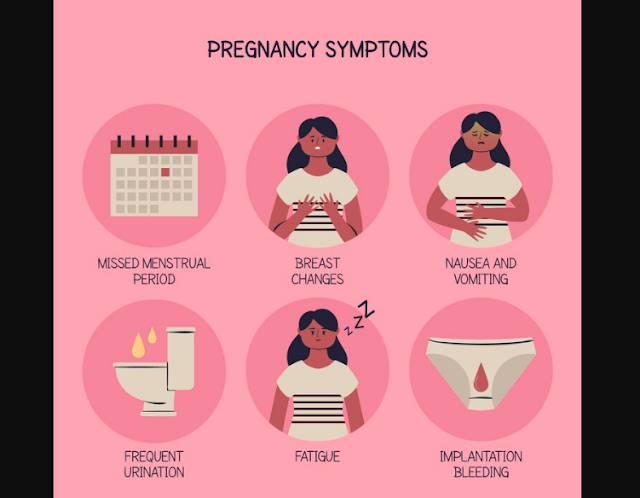Pregnancy is an exciting time for many people, but it can also be a bit nerve-wracking. After all, you're bringing a new life into the world! One of the first things you may be wondering is if you're pregnant at all.
There are a number of early pregnancy signs that can
indicate that you have a little one on the way. Some of these signs are more
common than others, and some women may experience more or fewer signs than
others.
Here are 10 of the most common early pregnancy signs:
- Missed
period: This is often the first sign that many women notice. If you
have a regular menstrual cycle and you miss a period, it's possible that
you're pregnant.
- Breast
changes: Your breasts may become tender, swollen, or sore early in
pregnancy. You may also notice that your nipples darken or become more
erect.
- Fatigue: Many
women experience extreme fatigue in the early weeks of pregnancy. This is
due to the hormonal changes that your body is going through.
- Nausea
and vomiting: This is another very common early pregnancy symptom.
Nausea and vomiting can occur at any time of day, but it's most common in
the morning.
- Frequent
urination: As your pregnancy progresses, your uterus will begin to
grow and put pressure on your bladder. This can lead to more frequent
urination.
- Light
spotting: Some women experience light spotting or bleeding early in
pregnancy. This is known as implantation bleeding and it occurs when the
fertilized egg attaches to the lining of the uterus.
- Food
cravings and aversions: It's common for women to develop food
cravings and aversions during pregnancy. You may suddenly crave certain
foods that you never used to like, or you may find that you can't stand
the smell of certain foods that you used to love.
- Mood
swings: Pregnancy hormones can also cause mood swings. You may feel
happy and excited one minute, and then irritable and sad the next.
- Bloating: Bloating
is another common early pregnancy symptom. This is due to the hormonal
changes that your body is going through, as well as the growth of your
uterus.
- Basal
body temperature (BBT) rise: Your BBT is your temperature when you
first wake up in the morning. If you're tracking your BBT, you may notice
a rise in temperature after ovulation. This is known as a thermal shift
and it can be a sign of pregnancy.
If you're experiencing any of these early pregnancy signs,
it's a good idea to take a home pregnancy test. Home pregnancy tests are very
accurate, especially if you take them a week or more after your missed period.
If you get a positive pregnancy test result, it's time to
schedule an appointment with your doctor. They will be able to confirm your
pregnancy and start prenatal care.
Prenatal care is important for both you and your baby. Your
doctor will monitor your health and the health of your baby throughout your
pregnancy. They will also provide you with information on how to stay healthy
and have a safe pregnancy.
Congratulations on your pregnancy!
Read Also:
Can you get pregnant during your period?
What to do in the first three months of pregnancy?
What is the menstrual cycle or period of girls? What is normal menstruation?
Why women have abnormal menstruation (period)?
What are the very early Pregnancy symptoms in the first week?


একটি মন্তব্য পোস্ট করুন